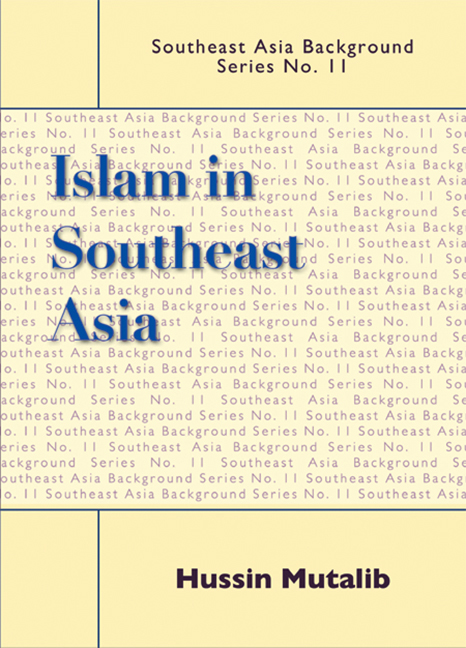Book contents
2 - Indonesia
Published online by Cambridge University Press: 21 October 2015
Summary
Islam came to present-day Indonesia around the thirteenth century. Gradually, through the complex process of trade with Muslims, conversion of the royalty to Islam, and the appeal of the Muslim faith, the faith spreads across the length and breadth of the archipelago, which, consisting of more than 17,000 islands, is the largest in the world. By the sixteenth century, Muslims were already the majority community in most parts of the archipelago, covering about 1 million km, except the Hindu-majority island of Bali. Among the well-known Muslim Sultanates in the fifteenth to the eighteenth centuries, were the Demak, Mataram, Ternate, Tidore and Aceh Sultanates.
The nature of Islamic practice and the role of Islam in Indonesia were shaped by many factors, two of which are probably the most important. The first is the then prevailing Hindu-Buddhist-animist environment that had long existed and flourished before the advent of Islam. Present Indonesia has had a long history of Hindu-Buddhist rule and influence, and much has been written about the Srivijaya, Sailendra and Mataram kingdoms. Given such a political and religious backdrop, the Islamization process in Indonesia was not only slow, but was also fused with local, indigenous Hindu-Buddhist-animist mores and norms. In this latter regard, one example that comes to mind is the resort to gamelan music (which originated in Hindu culture) by the famed Islamic brothers known as the “Wali Songo” in their spread of Islam in the Indonesian heartlands.
The second factor that has to be included in any discussion about the role and influence of Islam in this archipelago is the advent of colonial rule (Portuguese, Dutch, British), particularly the Dutch. After its seizure of Ambon in 1605, Holland regarded the occupied country as the Dutch East Indies and adopted a series of policies and laws that had the effect of curtailing the role of Islam in the country.
- Type
- Chapter
- Information
- Islam in Southeast Asia , pp. 13 - 24Publisher: ISEAS–Yusof Ishak InstitutePrint publication year: 2008



